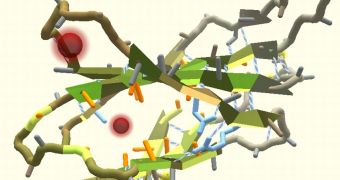One piece of news that recently popped up on a few sites talked about how researchers at the University of Washington were helped in crucial research linked to the development of better medicine to fight AIDS by gamers who used the Foldit online video game.
The mechanics of the game are pretty simple and allow any player to look at a model of a protein, see the simple rules which govern its existence and then try to “optimize” that shape.
Players can also work together in teams and it seems that the competitive element is highly developed on Foldit, with the various teams working pretty hard to perform better than the others.
That video game players, of their own free will, have managed to actually help the progress of science, is a stunning piece of news, especially considering that the gaming world mostly make headlines in the press because they MMO players die during World of Warcraft sessions or because franchises like Call of Duty are mentioned as causes for criminal activity.
We know that the press tends to focus on the sensational so the news about Foldit gamers helping the fight against AIDS has received much less attention than unsupported links, earlier during the year, between shooters and the massacre in Norway.
The Foldit powered research should really get more exposure because it shows how gaming, which is mostly seen as a past time that does little to contribute to the larger issues of our world, can easily be converted into a tool for solving problems.
The good people at the Computer Science and Engineering at the University of Washington should really take the success of Foldit as a sign that they should try and use the same model to get players involved with other real world problems, allowing for the competitive edge that exists in the gaming world to fuel potential solutions for real world issues.

 14 DAY TRIAL //
14 DAY TRIAL //